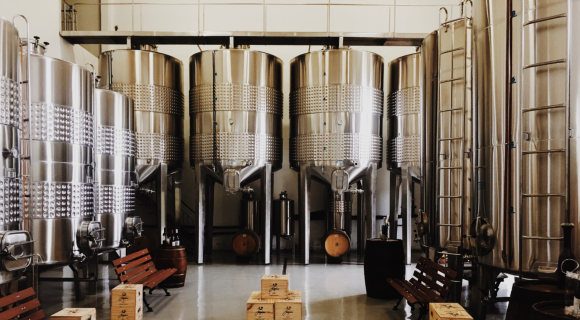School leaver blog: work shadowing, breweries and more
- Anna Vall Navés
- 18 Dec 2019
Welcome to this week’s AllAboutSchoolLeavers’ blog! In this edition, we’ll be talking about work shadowing: what it is, its benefits and where to find it. We’ll also be talking about the weird but wonderful brewer apprenticeship launched last year and about Leah Johncock’s experience as an apprentice accountant.

Career insight of the week: work shadowing
It’s never too early to start getting a feel for some of the industries you might want to work in someday, and if you’re not quite ready to apply or commit to an internship, work shadowing can be an excellent choice. Even if you’re still in school, work shadowing can help you decide whether the job you’re considering is right for you, and consequently, also whether the university degree or apprenticeship you were thinking of applying to will prove to be the best choice.
Work shadowing allows you to experience the day-to-day of a specific sector or role by ‘shadowing’ one or more people who work there, generally for a period of a few days or a week. Work shadowing is unpaid—as you’re not actually carrying out a job yourself—but it can be an extremely valuable experience nonetheless, opening up your eyes to different roles and allowing you to network and get advice from current employees. It’s worth noting that if you are doing any sort of work for a company, it should be classed as work experience rather than shadowing, and you need to be paid for that work. This is the law.
With several exceptions (primarily health and social care), work shadowing opportunities are available in almost every industry. These opportunities, however, are not generally advertised anywhere. If you’d like to shadow in a specific industry, you should get in touch with companies in that sector directly and ask. Generally, people are quite helpful when it comes to work shadowing; but if you don’t hear back, just keep trying!
“The only source of knowledge is experience.” —Albert Einstein
Weird and wonderful apprenticeships: brewer
With around 2000 breweries in the UK, brewers are in high demand nowadays. And making beer is no joke. According to Brigid Simmonds, chief executive of the British Beer and Pub Association, brewing is a highly scientific and technical process: “Brewing is a serious business and it requires real expertise.”
So, if you’re interested in the science behind alcoholic beverages, the relatively new level 4 brewer apprenticeship might be for you. Over the course of 18 months, apprentices learn about making beer both on the job and in training, and they can later expect to progress to a master brewer’s role. While it may be a niche role, it’s certainly not one without appeal or challenge.
Spotlight on: Leah Johncock, accountant apprentice at Delphi Technologies
Leah Johncock, a student at SGS College, is soon to complete her advanced AAT Assistant Accountant Apprenticeship with Delphi Technologies. When asked why she chose to do an apprenticeship instead of A-Levels, Leah said: “I knew from quite a young age that finance was something I wanted to do as a career. After completing a year of AS Levels, I decided that I would benefit much more from learning in a working environment.”
In relation to her apprenticeship, Leah mentioned that she liked the idea of both earning money while learning, and of attending college alongside gaining work experience. She also claimed that she took away not only a greater knowledge of accounting from her apprenticeship but also a wider understanding of the world of work and about adult life generally: “Being in the workplace surrounded by adults who have much more life experience than me has had a huge impact on my wider knowledge – in accounting but equally with my general knowledge, which I think has helped shape the person I’ve become.”
Recommended reading
- The COP25, the most recent climate change conference held this year, ended last week having accomplished conspicuously little.
- Also on the topic of the climate crisis, Peter Ellerton focuses on the language of climate change and explores how to talk about it like Greta Thunberg.
- Tre Vayne analyses a new Instagram trend known as blackfishing, a new form of blackface that is both subtle and dangerous.
- The media outlet The Good Men Project is redefining notions of manhood and stimulating new conversations about what it means to be a ‘good man’ in the 21st century.
- At a point where conversations surrounding mental health are—fortunately—becoming commonplace, Melissa Pandika discusses the key differences between normalising and glamorising mental illness.
- Finally, when it comes to physical rather than mental health, Markham Heid discusses the least amount of exercise we need to stay healthy.
News
- The London Professional Apprenticeship (LPA): New Year, New Scheme!
- PwC will stop using A-level Results to assess Grad Scheme Applicants
- The top UK employers for school leavers have been announced
- Over 70% of Parents think University is Unaffordable
- Apprenticeship Vacancies Up Almost A Third
- Civil Service Apprenticeship Positions Set to Double for 2015
- The 300th apprenticeship standard has been approved
- UCAS reports record number of people placed in their first choice university
- GCSE results 2015: more girls are taking STEM subjects
- Apprentices Contribute £34bn to UK Economy